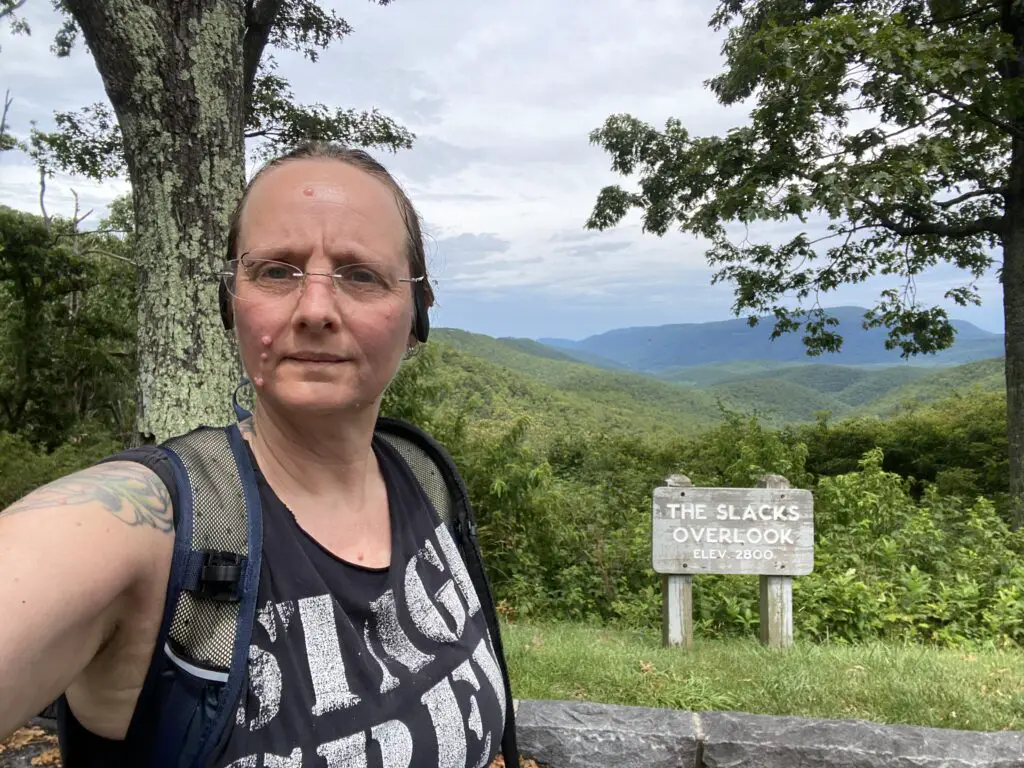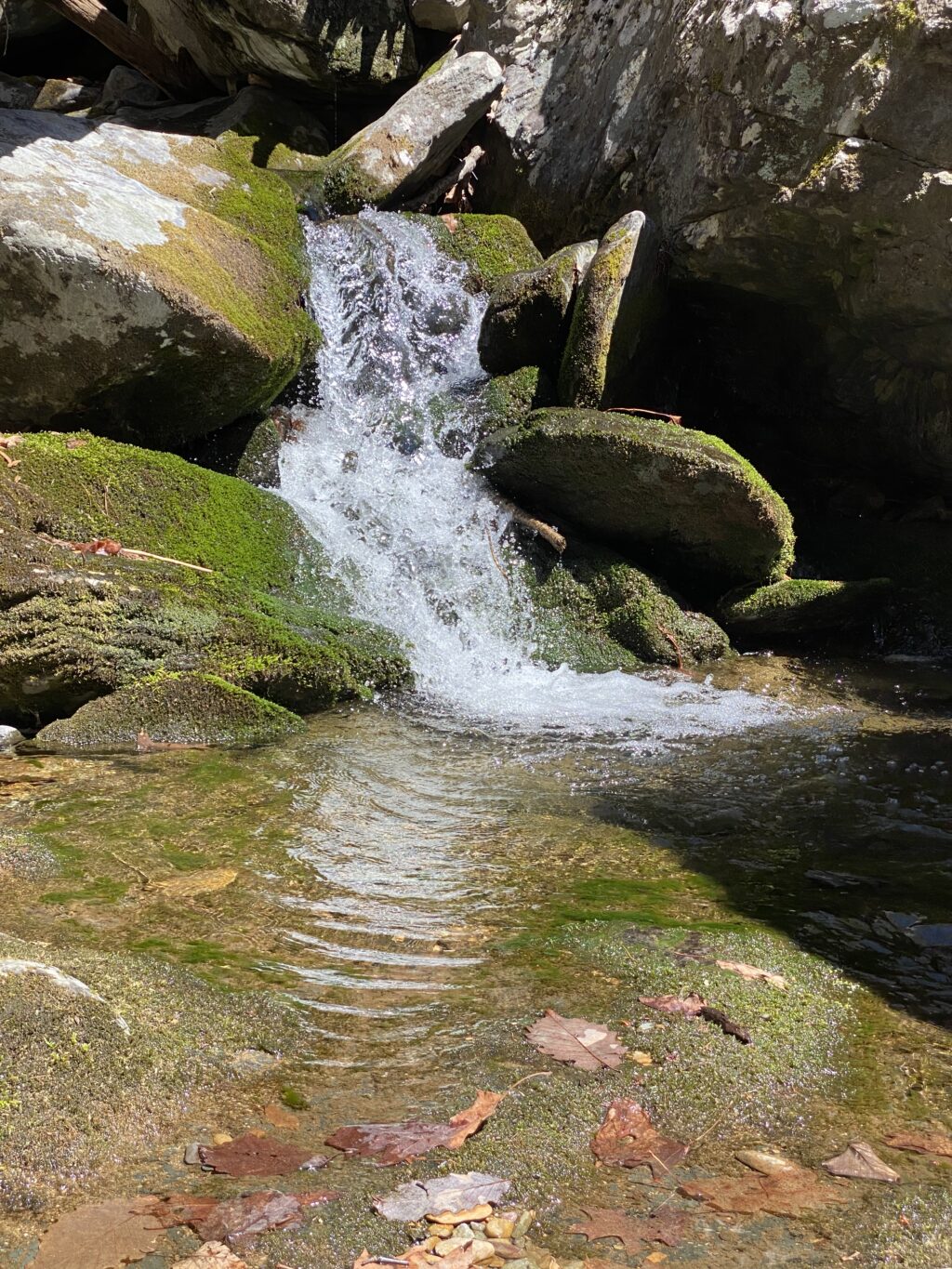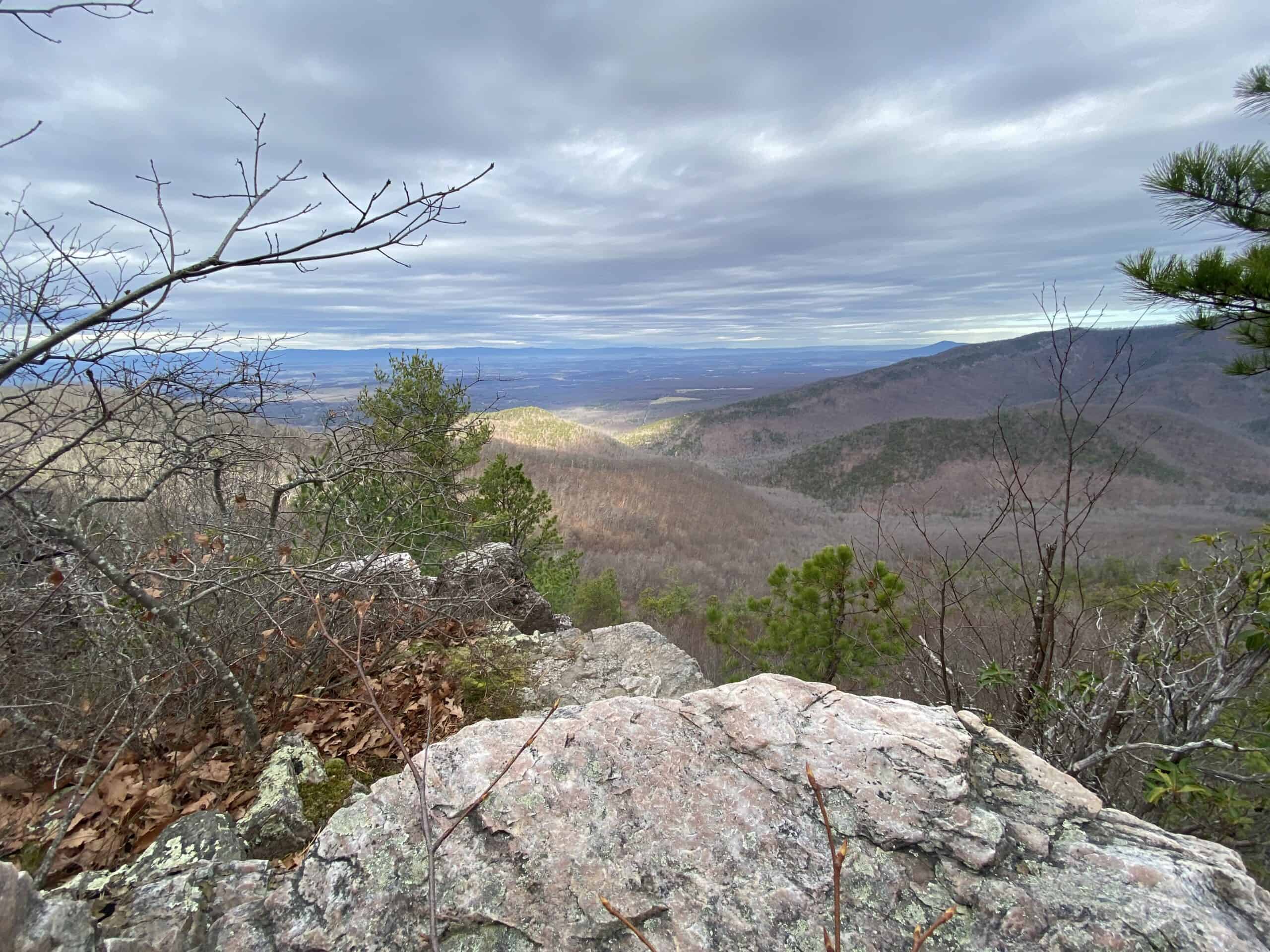I hike solo and have been sharing my adventures on social media, and I’ve gotten a few comments lately. So I figured I’d talk about it here.
Maybe it’s because I grew up in foster care, but I’ve always had this tendency to just go for things. Over time, I’ve learned that when you let fear or anxiety call the shots, it can steal a lot of the joy from your life.
But I’ll be honest with you, I didn’t always feel like I could hike solo. For a long time, I wondered what people would think. Would they judge me for going without my partner? And yeah, for a minute I thought about all the awful things that could happen.

Here’s the truth: my partner would love to be out there with me, but health stuff makes it tough. I’m so grateful he supports me getting out there anyway. I’m not going to miss out on something that brings me peace and joy just because I have to do hike solo.
I started small. Local trails are close to the house. Then, slowly began venturing into the mountains, some as far as an hour away. And I fell in love with it.
Hiking clears my head. It connects me to nature. It helps me work through emotions and ideas. And while I know some people prefer hiking in groups or with friends, I’ve come to really value the solo time.
Why I Love Hiking Alone
There’s a freedom that comes with solo hiking. You set your own pace. You decide when to stop and take in the view, when to push harder, and when to rest. You get to be fully present with yourself and with the trail.
It’s quiet. It’s grounding. And that quiet space gives me room to think more clearly. I’ve worked out problems and found new ideas for art and business while moving through the woods.
Solo hiking has also helped me build confidence. You’re the one responsible for getting yourself out there and back again. And when you finish a tough trail on your own, it feels good. After hiking Three Ridges, I felt strong, capable, and ready for more.
But Let’s Talk About Safety
I never take safety lightly. Here are a few things I always do before and during my hikes:
Plan ahead: I research the trail, check recent reviews, and always download a map. I use AllTrails and make sure to save the route offline.
Tell someone: My partner always knows where I’m going and when I should be back. I factor in the drive and estimate how long I’ll be out, adding in time for rest or surprises. I don’t post my route publicly until after I’m home.
Pack smart: I bring water, snacks, extra layers, first aid, and some form of self-defense. My phone is charged, and I carry a battery pack just in case.
Stay aware: I no longer hike with headphones in. I want to hear what’s around me, whether it’s birds, a change in the wind, or someone else on the trail. Being aware of your surroundings can make all the difference.
For Anyone Thinking About Solo Hiking
If you’re thinking about trying it, here are a few things I’d say:
- Start with short hikes on familiar trails and build up from there
- Stick to marked trails and avoid shortcuts
- Take breaks, drink water, and eat even if you don’t feel like it
- If something feels off, listen to that feeling
- Respect the land and leave no trace—pack it in, pack it out
Hiking alone isn’t about proving anything. It’s about being present with yourself and nature. It’s about learning what you’re capable of, and finding peace in your own company.

My hike on Doyle’s River Loop was another great solo experience, and I’ll keep sharing these trips as I take them. It’s not for everyone, and that’s okay. But if you’ve been curious about hiking alone and weren’t sure if it was something you could do, I hope this gives you a little nudge.
Have you ever hiked solo? I’d love to hear what it was like for you. What did you learn? What surprised you?
Let’s talk about it.




Leave a Reply